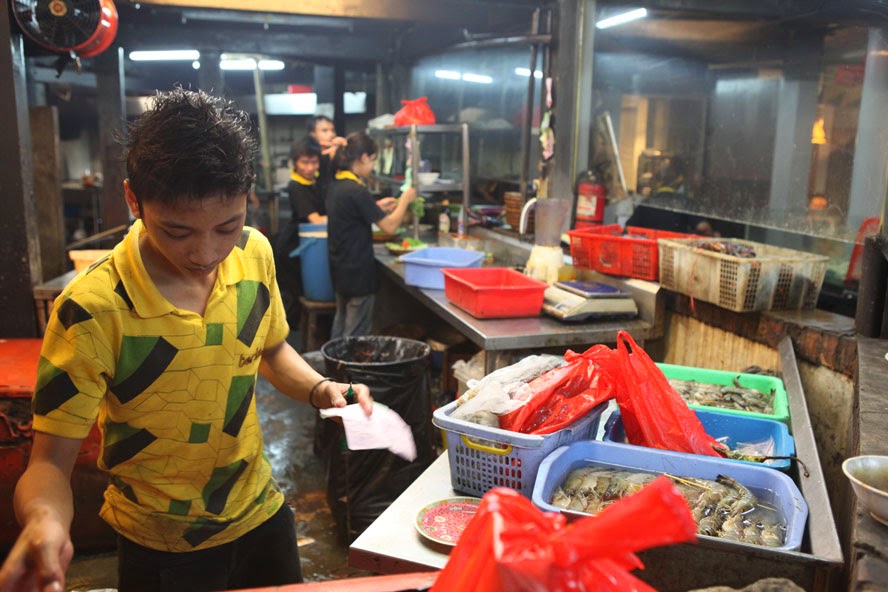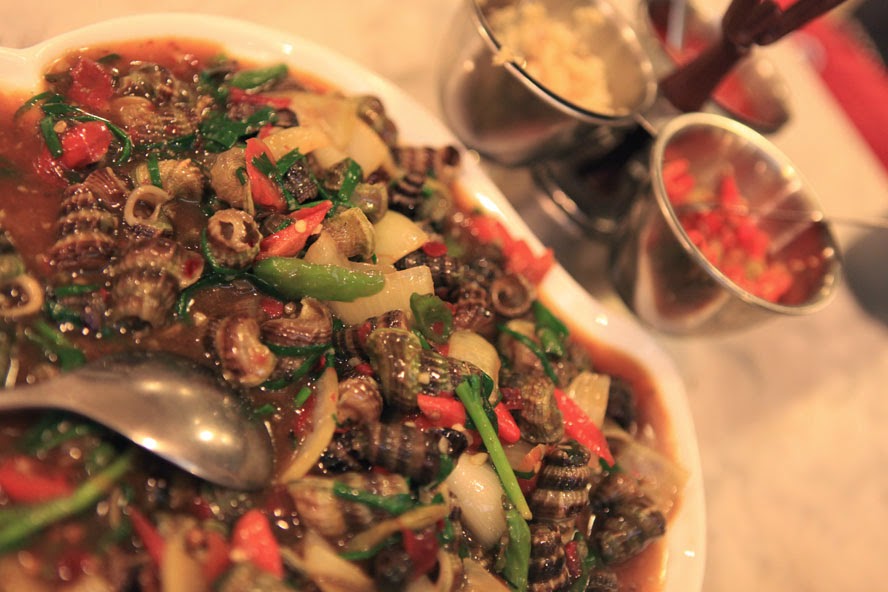I may have tried about 400 restaurants in Jakarta, and I would say only 25% of them taste good enough. Restaurants with Asian food are usually better, especially Indonesian, Chinese and Japanese ones.
For Western food, it is very rare to find a restaurant that serves good food unless a westerner is involved at some point (as a manager, chef, owner or consultant). My most common criticisms: Low-quality ingredients, over use of industrial cheese, sauces too salty or too greasy, no real butter, too much sugar, absence of taste, over or undercooking, etc...
Only when eating in the most expensive places (usually in 5-star hotels or reputed chains), the standards are satisfactory, though fast to deteriorate. Very few venues in Jakarta, to my knowledge, offer constant good western food at reasonable prices.
For Asian food, I consider that most restaurants serve street food quality at best. If you do not mind the hygiene and hot weather, you'll eat better sitting on a bench in Mangga Besar than in most restaurants in malls.
For Western food, it is very rare to find a restaurant that serves good food unless a westerner is involved at some point (as a manager, chef, owner or consultant). My most common criticisms: Low-quality ingredients, over use of industrial cheese, sauces too salty or too greasy, no real butter, too much sugar, absence of taste, over or undercooking, etc...
Only when eating in the most expensive places (usually in 5-star hotels or reputed chains), the standards are satisfactory, though fast to deteriorate. Very few venues in Jakarta, to my knowledge, offer constant good western food at reasonable prices.
For Asian food, I consider that most restaurants serve street food quality at best. If you do not mind the hygiene and hot weather, you'll eat better sitting on a bench in Mangga Besar than in most restaurants in malls.
I believe the reasons for this problem comes from the following issues:
- Difficulty to hire trained staff and to maintain this staff within a restaurant on the long term
There are some fine schools to learn cooking in Indonesia (all the STPs, Sekolah Tinggi Pariwisata), but they produce few graduates. Basically almost 100% of a class will be hired by 5-star hotels or by the biggest restaurants chains. Most of them are also still young and it will take them many years to grow into fully developed chefs. Among those who reach a certain level, very few are opening their own restaurants.
Since the good staff is on such a high demand, the turnover for each places is quite high. New restaurants open weekly in Jakarta, so there is nothing easier than getting a higher salary for anyone a little ambitious. The lack of stability of the teams plus their relative lack of experience is the number one problem for restaurants in Jakarta.
- Difficulty to hire trained staff and to maintain this staff within a restaurant on the long term
There are some fine schools to learn cooking in Indonesia (all the STPs, Sekolah Tinggi Pariwisata), but they produce few graduates. Basically almost 100% of a class will be hired by 5-star hotels or by the biggest restaurants chains. Most of them are also still young and it will take them many years to grow into fully developed chefs. Among those who reach a certain level, very few are opening their own restaurants.
Since the good staff is on such a high demand, the turnover for each places is quite high. New restaurants open weekly in Jakarta, so there is nothing easier than getting a higher salary for anyone a little ambitious. The lack of stability of the teams plus their relative lack of experience is the number one problem for restaurants in Jakarta.
- Difficulty to get a regular supply of quality ingredients at a reasonable price
The second problem is the quality of ingredients coming from Indonesia. I don't mean to offend anybody but until now, the agro-industrial companies in Indonesia fail to manufacture or produce quality products.
Take chocolate for instance. Indonesia is one of the largest producer of cacao beans in the world. And yet, chocolate made in Indonesian is low standard and any restaurant/bakery who wants to have a decent dessert with chocolate must import.
Fruits and vegetables also are rather disappointing, especially when you know how they taste in neighboring countries. Compare a mango from Indonesia and a mango from Thailand and you'll understand what I am talking about.
The same goes with dairy and meat products (especially cheese, yoghurt, beef, lamb and of course pork).
The Indonesian government is protecting local industries by imposing high tariffs on most imported food, but unfortunately this has not led to an improvement of the quality of locally-sourced ingredients. I think it creates just the opposite: Producers feel protected and they do not invest to improve their methods and processes.
- Few independent restaurants
Restaurants owners in Jakarta are rarely chefs themselves. Most often, restaurants are owned by business people with a training in finance, accounting, marketing, public relation. They know how to make the place busy and profitable, but the food comes last. Spending millions of rupiah for the design and marketing of a place while buying the poorest quality ingredients in the kitchen is the norm. If restaurants where opened by chefs or by people with a real interest in food, I am sure that the quality of restaurants in Jakarta would improve dramatically. Unfortunately, the access to financing or the right connection needed to open a restaurant in the city makes it very difficult for anybody who does not belong to a certain elite.
The second problem is the quality of ingredients coming from Indonesia. I don't mean to offend anybody but until now, the agro-industrial companies in Indonesia fail to manufacture or produce quality products.
Take chocolate for instance. Indonesia is one of the largest producer of cacao beans in the world. And yet, chocolate made in Indonesian is low standard and any restaurant/bakery who wants to have a decent dessert with chocolate must import.
Fruits and vegetables also are rather disappointing, especially when you know how they taste in neighboring countries. Compare a mango from Indonesia and a mango from Thailand and you'll understand what I am talking about.
The same goes with dairy and meat products (especially cheese, yoghurt, beef, lamb and of course pork).
The Indonesian government is protecting local industries by imposing high tariffs on most imported food, but unfortunately this has not led to an improvement of the quality of locally-sourced ingredients. I think it creates just the opposite: Producers feel protected and they do not invest to improve their methods and processes.
- Few independent restaurants
Restaurants owners in Jakarta are rarely chefs themselves. Most often, restaurants are owned by business people with a training in finance, accounting, marketing, public relation. They know how to make the place busy and profitable, but the food comes last. Spending millions of rupiah for the design and marketing of a place while buying the poorest quality ingredients in the kitchen is the norm. If restaurants where opened by chefs or by people with a real interest in food, I am sure that the quality of restaurants in Jakarta would improve dramatically. Unfortunately, the access to financing or the right connection needed to open a restaurant in the city makes it very difficult for anybody who does not belong to a certain elite.
There is also a bunch of smaller issues who contribute to the problem also:
- The price of kitchen equipment is usually imported and expensive. Smaller restaurants do not have the possibilities to buy the necessary tools for cooking properly.
- The menus tend to be extensive with many favorites from different countries. Keeping the menu short to a few well-mastered items could certainly help.
- Lack of control from authorities regarding the hygiene and the standards. I imagine that you can put a sign saying your food is organic with no MSGs, and no one will really check.
If so many bad restaurants in Jakarta continue to exist, it is because people still go there. Hopefully the public will become more demanding with time and put more pressure on restaurateurs to improve their quality. Changes can only come from them.


